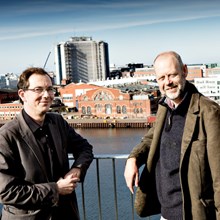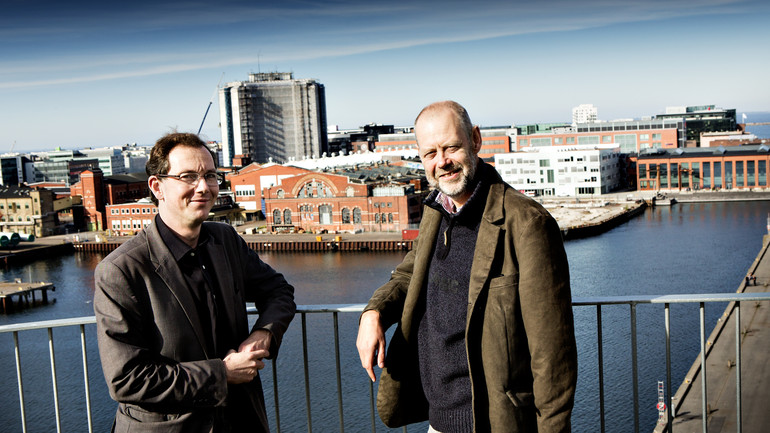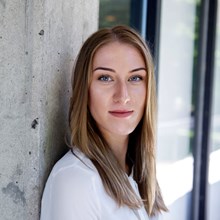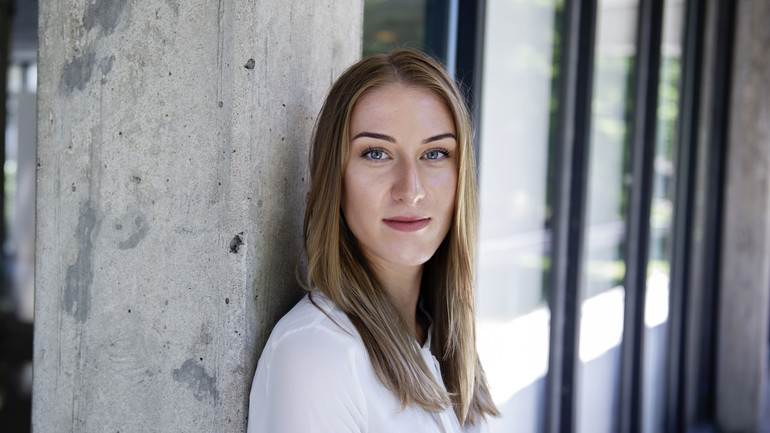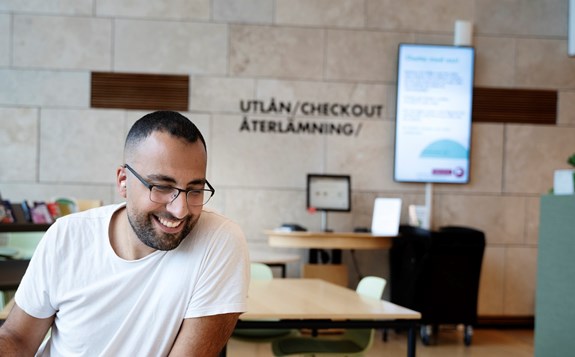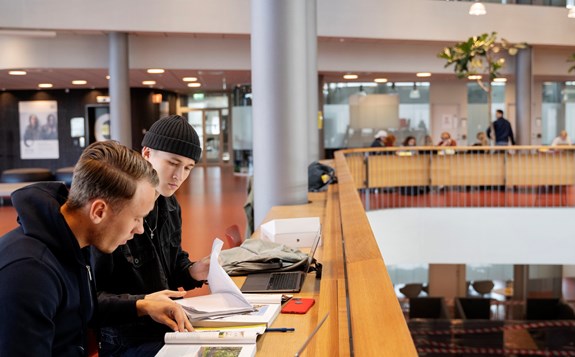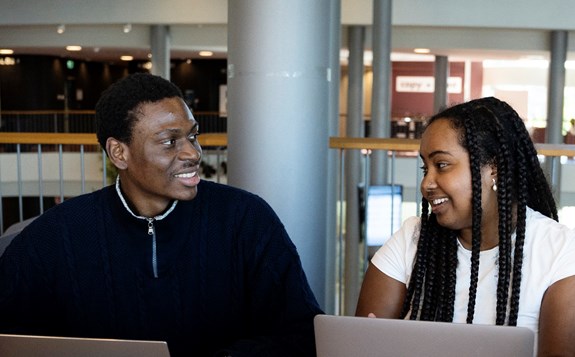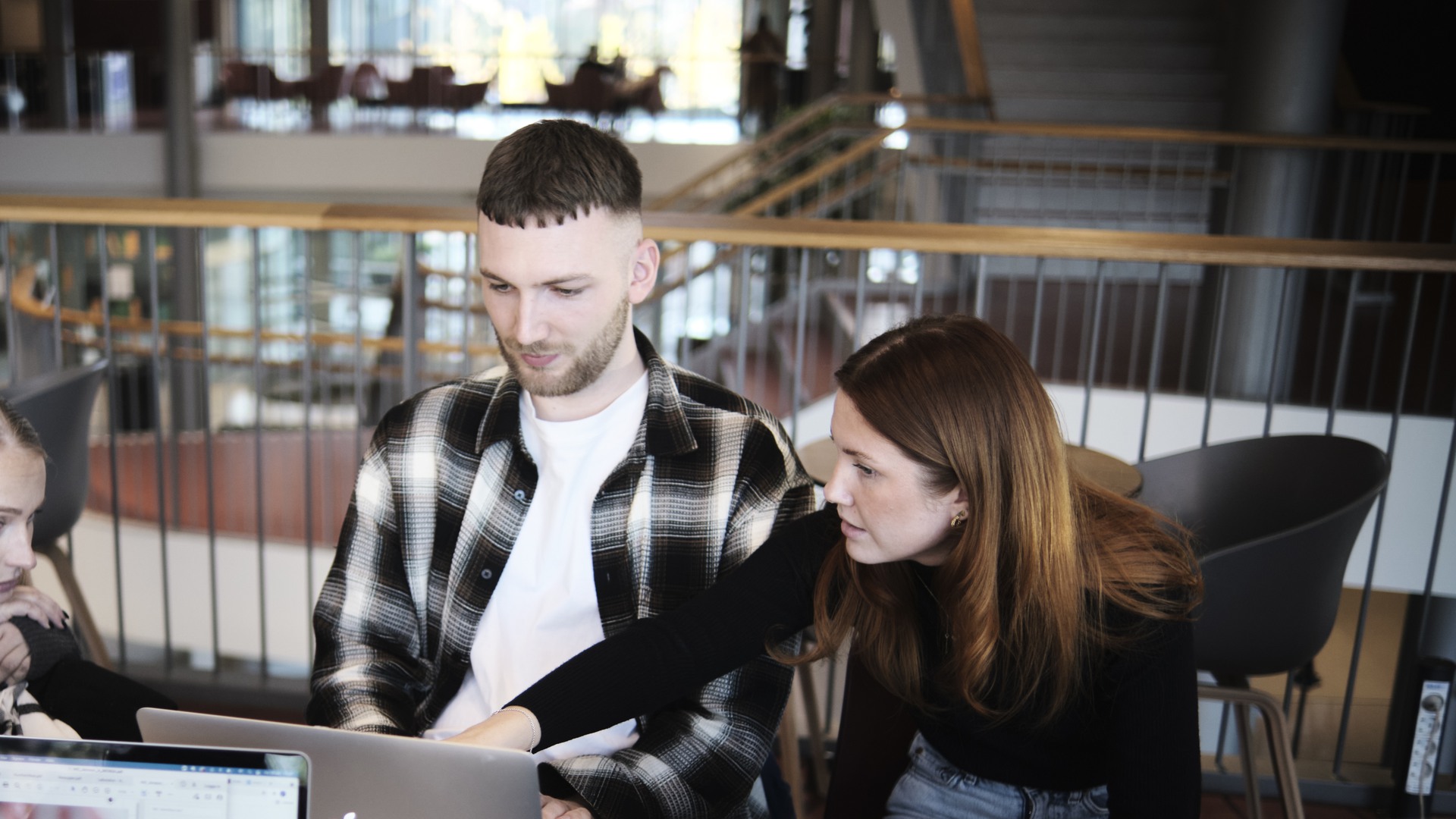“I valued the international atmosphere”
Hana Biberovic chose the European Studies programme to deepen her knowledge about EU questions and get a foundation to pursue a career within the Swedish Ministry of Foreign Affairs. She would recommend the program to those who are determined and interested in learning more about Europe and how the EU functions on the global as well as local level.
Why did you choose to study the European Studies programme?
My interest in the European Union started when I visited Brussels and the various EU institutions. After this visit, I wanted to learn more about Europe as a whole and how the EU is functioning and affecting the everyday life of the European citizens, but also people outside the EU. The European Studies programme seemed like a perfect fit for me.
What was your favourite part of the programme?
It is hard to specify since a little bit of everything has been interesting. However, I remember that I enjoyed diving into EU legislation (Directive on the Safety of Toys) to examine what it really says, while a myth about ‘EU forbidding toys for children’ blossomed up in the British media.
What I came to appreciate more during my latest traineeship is the first semester of the programme that focused on western political thought. I remember that I did not like Plato, Aristotle or Socrates, but they became my best friends when it was my job to understand a completely different and complex society from the Swedish one. ‘Plato’s Cave’ has answered very complex questions that I have been asking myself in the last years.
Where have you been doing your internship, and how has the programme benefited you in your work?
I did my first internship at the European Commission Office in Stockholm where I worked with different EU questions. Here, I learned a lot about communication and the relationship between the EC and Sweden. The daily assignment was to report to the EC what is on the agenda in Sweden, as well as communicate to Swedish citizens, authorities and journalists what is on the agenda in the EU. I benefited a lot from my studies during this internship since I, for example, had knowledge about the EU institutions and how they function, as well as different EU policies such as EU enlargement and Brexit (of course).
I recently did an internship at the Embassy of Sweden in Belgrade, that is regulating both Serbia and Montenegro. Since I worked at the department of politics, trade and public diplomacy I have been conducting political reporting, handling strategic communication and administration, as well as participating in various project developments. During my studies, I gained a lot of knowledge of different theories on EU enlargement and integration. This was very fruitful to have in the back of the mind when I, for example, attended enlargement negotiations between the EU and Montenegro, who is a frontrunner in EU integration.
The benefits of doing an internship are big and I would recommend this to everyone. During your internship, you will first and foremost get an insight of how it is to work with questions related to your field, but you will also most importantly gain working experiences which are highly demanded when you graduate and start looking for a job.
What is the classroom experience like?
The classroom experience was very good! You study with students from all over the world, which is very fruitful when you, for example, have a discussion or presentation in class. Perspectives and arguments are brought up through people with different experiences, which I think is crucial if you are to for example work with EU questions in the future.
What was your experience like studying at Malmö University?
Malmö University left a very good impact on me. I especially valued the international atmosphere and the professors that are very competent and engaged in their lectures. During your studies you can also receive a wide support from the University, everything from how to write the best CV — to how to best find literature for your B.A. thesis.
What are your plans for the future?
Currently, I am studying French and business and administrative law in Lund. After the summer I will be moving to Brussels to work at the European Parliament, and somewhere in the future I wish to study a master’s as well to widen my understanding of questions that are crucial in the political sciences field. In the future I hope to work with matters that lie close to my heart, at a workplace I can value and that gives me the opportunity to leave an impact on someone or something. In the future, it would also be very interesting to work within the EU or the Swedish Ministry for Foreign Affairs, as long as no xenophobic parties are ruling in the government.
